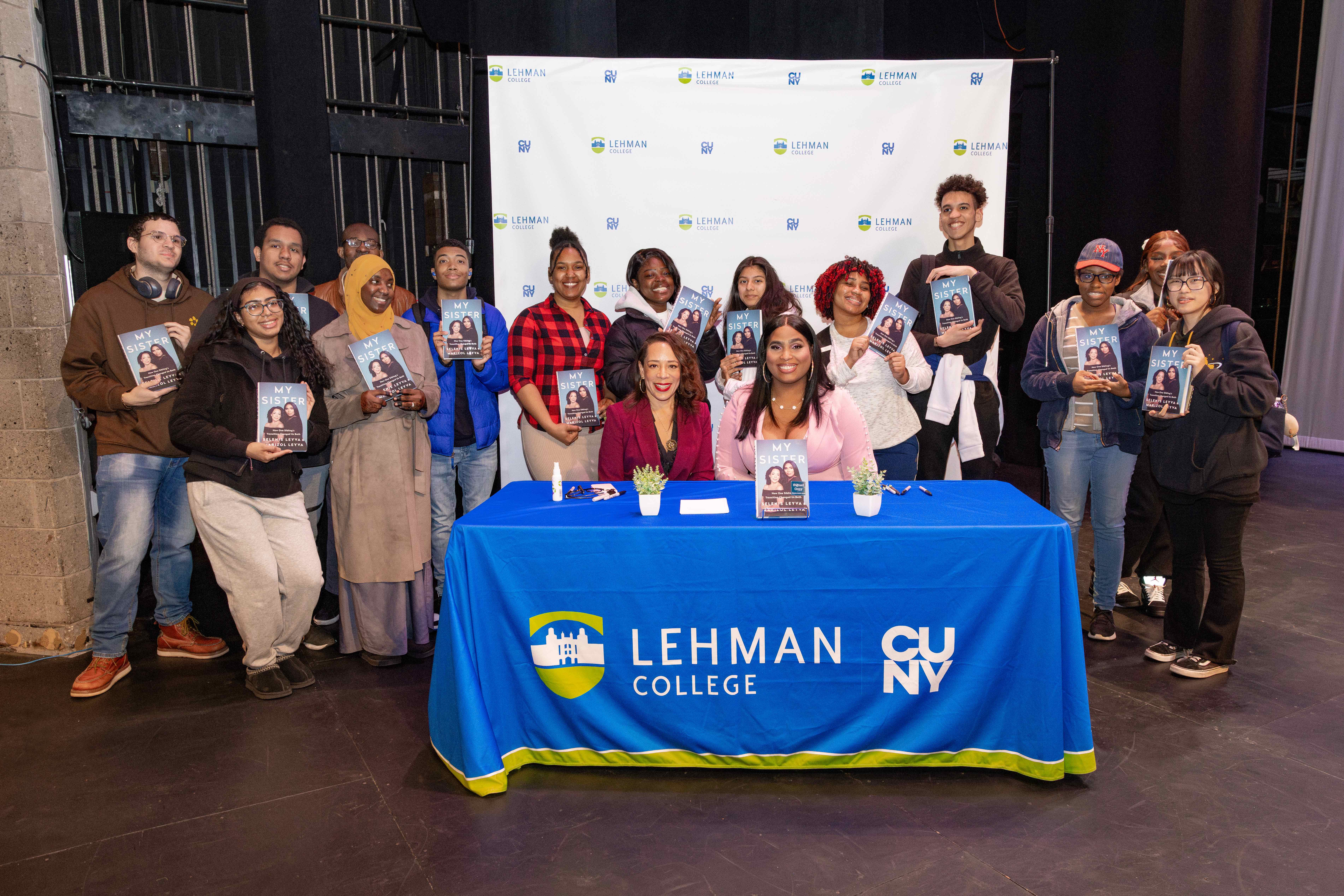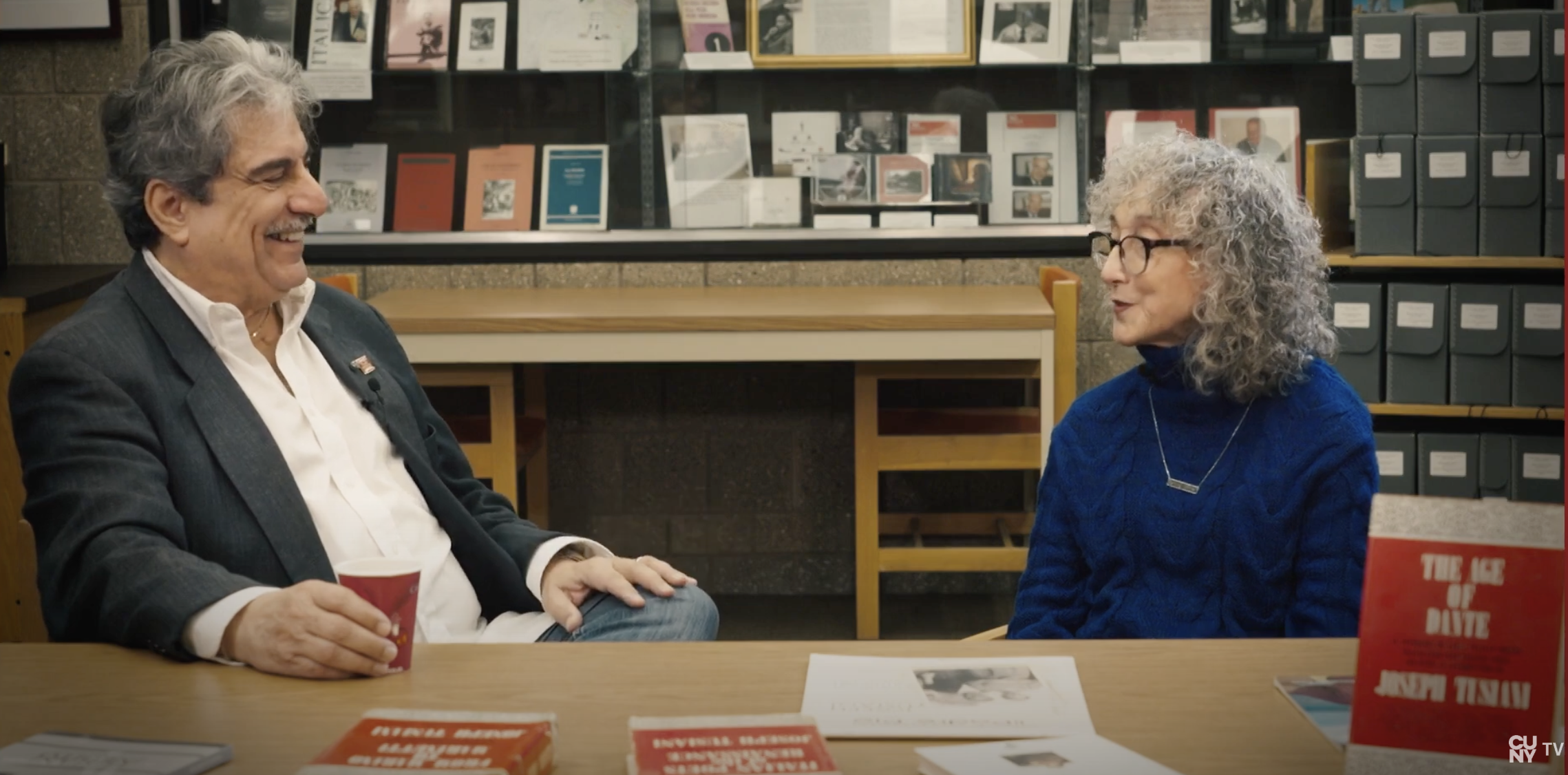- Lehman College >
- News >
- 2025 >
- A Powerful Transition Takes Center Stage at the Lehman Lecture
News
Search All News
Monday, December 15, 2025
CONTACT
Office Hours
Monday - Friday 9am - 5pmClosed Sat. and Sun.
RELATED STORIES
December 30, 2024
December 19, 2024
A Powerful Transition Takes Center Stage at the Lehman Lecture

Selenis and Marizol Leyva with Lehman College students who received signed copies of their memoir, My Sister: How One Sibling's Transition Changed Us Both.
April 7, 2025
The 55th annual Herbert H. Lehman Lecture brought Marizol and Selenis Leyva home to The Bronx on March 25 for a frank and nuanced conversation about their acclaimed memoir, My Sister: How One Sibling's Transition Changed Us Both.
Moderated by William Murray, chief of staff to Lehman President Fernando Delgado, the event offered a rare glimpse into a family's experience when one member goes through gender transition.
The idea for the book was born when Selenis Leyva, whose starring roles in hit shows “Orange is the New Black” and “Lopez vs. Lopez” brought her into the public eye, saw she could use her visibility to amplify the voices of people like her sister Marizol, a transgender model, cook, musician, and activist.
“I knew that my platform could be used for something good,” Selenis Leyva said. “I could give my sister an opportunity to share her story and, in doing so, help others.”
My Sister was a response to the attention given to Caitlyn Jenner, whose highly publicized transition was unlike those of the vast majority of transgender people. It was also an effort to broaden mainstream representations of transgender people that obscure the broader diversity of the transgender experience.
"This is an opportunity that many don’t get in their lifetime as a trans person—of color, at that—to show someone else who looks like me that they can take up space, that they can write their stories, and be in charge of their story instead of someone else writing it for them,” said Marizol Leyva.
Selenis added, “I also wanted to show that not all the stories that deal with LGBTQ+ issues are sad. This was about love; this was courage, acceptance, and respect.”
Nevertheless, the challenge of writing a memoir about gender transition, and telling the story from different sibling’s perspectives, “was really difficult,” Selenis said. “But I knew it was important because what happens a lot, especially in Black and brown communities, is that we don’t talk about LGBTQ+. We don’t talk about the hard stuff.”
For the Leyvas, that "hard stuff" included working through the conflicting emotions brought up by Marizol's transition. Although Selenis loved and supported her sister, she said that at first, she felt as though she were losing the little brother she had known. It was also a challenging adjustment for their father, a Cuban immigrant who is stereotypically “very macho.” The sisters' strong bond proved critical to his acceptance. “I was able to get back having a relationship with our dad because of my sister. She was the mediator throughout this whole journey,” Marizol Leyva said.
Eventually he became her advocate with friends and extended family members.
Asked what advice she would have given to her younger, pre-transition self, she echoed in a handful of words the humanitarian values of the lecture's—and the College's—namesake, Herbert H. Lehman: “You are worthy. You matter. You deserve to take up space.”









